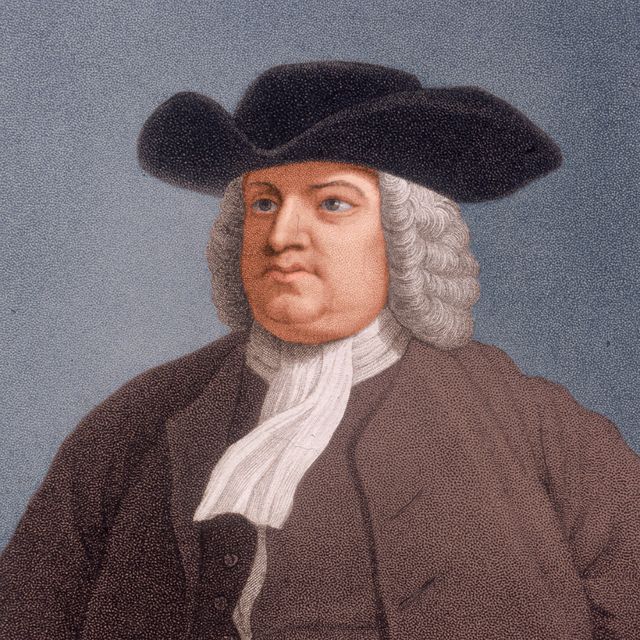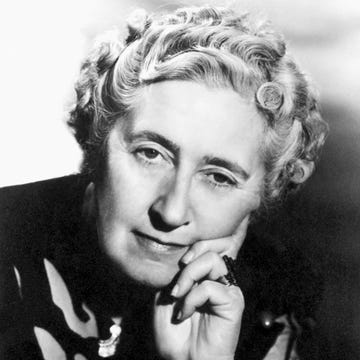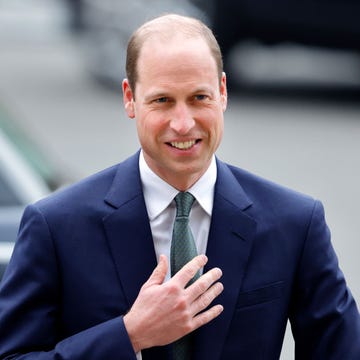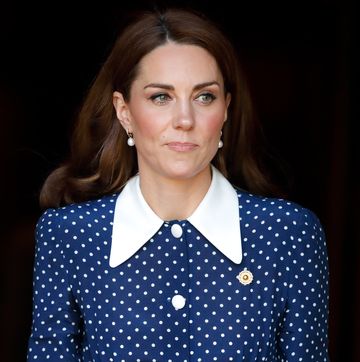(1644-1718)
Who Was William Penn?
William Penn was the son of an admiral and landowner, and he was educated in theology and the law. In his twenties, he converted to the Quaker religion and was jailed several times for his resistance to the Church of England. In 1681, he received a royal charter to form a new colony in America, to be named Pennsylvania; he envisioned this territory as a peaceful refuge for members of all religious beliefs.
Early Life and Education
William Penn was born in London, England, on October 14, 1644. His father, Sir William Penn, was an admiral and landowner who had been knighted by Charles II; his mother, Margaret Jasper Vanderschuren, was the daughter of a merchant.
Penn was educated at Chigwell School in Essex; he entered Christ Church College (University of Oxford) in 1660, but was expelled for criticizing the Church of England. His father sent him to France, where he studied theology at the Protestant Academy in Saumur. When he returned to England in 1664, he briefly studied law.
Religious Beliefs and Persecution
Penn traveled to Ireland to manage some of his father's property, and it was there that he came into contact with Quaker preachers who inspired him to join their faith. Following his conversion to the Society of Friends, Penn began to fight for greater freedom for this marginalized and frequently persecuted religious group.
In the late 1660s, Penn wrote several works about his new religious beliefs, beginning with The Sandy Foundation Shaken (1668), which questioned several basic Protestant doctrines. He was jailed for blasphemy in the Tower of London as a result of this publication. While imprisoned, he wrote No Cross, No Crown, another avowal of his faith. He was released in 1669, and he continued to promote the Quaker teachings of self-denial and social reform. Penn was arrested on further occasions, on charges of illegal preaching and inciting a riot. He also made missionary trips throughout England, and to Holland and Germany.
Penn married a Quaker woman, Gulielma Maria Springett, in 1672; the couple had three children together.
Founding of Pennsylvania
By the 1670s, Penn had become a figure of importance in the Quaker community. In 1675, he was asked to resolve a land dispute between Quaker property owners in the American colony of West New Jersey. After settling the dispute, using his legal knowledge and leadership skills, he was chosen to organize the founding of a Quaker colony in America.
Penn petitioned King Charles II for additional land to the west of the Delaware River, and he received a charter for this territory in 1681. He was made proprietor and governor of the new colony, which the king titled "Pennsylvania," and he moved there in 1682. He immediately began to direct this "holy experiment" by planning the new colony's government, writing its constitution, distributing land to settlers and establishing positive, peaceful relations with the local Indians. Penn's Letter to the Free Society of Traders (1683) was an account of his early activities in Pennsylvania.
In some ways, Pennsylvania was a quick success: It attracted many Quakers from England and Europe, as well as members of other groups seeking religious tolerance. However, the colony was also beset by financial troubles, border disputes and political conflict. In 1684, Penn returned to England, where his fortunes rose and fell with changes in royal rule. He lived in Pennsylvania again between 1699 and 1701, and revised its constitution during that time; after this stay, he resided in England for the rest of his life, leaving the colony under the management of his secretary, James Logan, and various deputy governors.
Later Years and Death
In 1696, Penn married his second wife, Hannah Callowhill, with whom he had seven children (his first wife had died in 1694). His wife assisted him in his proprietorship of Pennsylvania in his later years, especially after he suffered a stroke in 1712. Penn died in Ruscombe, in the county of Berkshire, England, on July 30, 1718.
QUICK FACTS
- Name: William Penn
- Birth Year: 1644
- Birth date: October 14, 1644
- Birth City: London, England
- Birth Country: United Kingdom
- Gender: Male
- Best Known For: William Penn was an English Quaker best known for founding the colony of Pennsylvania as a place for religious freedom in America.
- Industries
- Law
- U.S. Politics
- Christianity
- Journalism and Nonfiction
- Astrological Sign: Libra
- Schools
- Protestant Academy
- Chigwell School
- University of Oxford, Christ Church College
- Death Year: 1718
- Death date: July 30, 1718
- Death City: Ruscombe, Berkshire, England
- Death Country: United Kingdom
Fact Check
We strive for accuracy and fairness.If you see something that doesn't look right,contact us!
CITATION INFORMATION
- Article Title: William Penn Biography
- Author: Biography.com Editors
- Website Name: The Biography.com website
- Url: https://www.biography.com/political-figures/william-penn
- Access Date:
- Publisher: A&E; Television Networks
- Last Updated: October 28, 2021
- Original Published Date: April 2, 2014
QUOTES
- True religion does not draw men out of the world but enables them to live better in it and excites their endeavors to mend it.
- There can be no friendship where there is no freedom. Friendship loves a free air, and will not be penned up in streight and narrow enclosures.
- All men have a natural and indefeasible right to worship almighty God according to the dictates of their own consciences.












